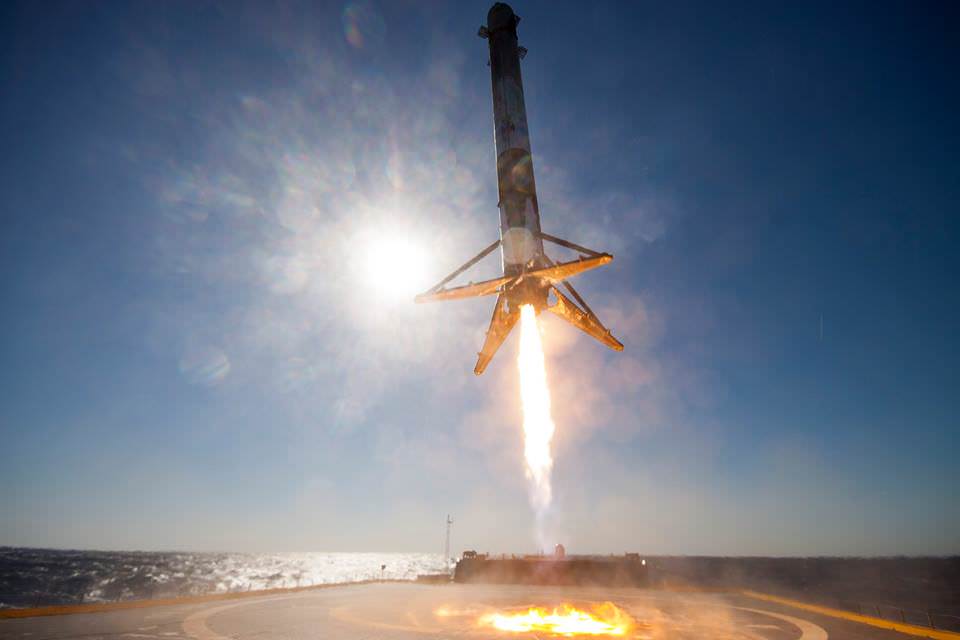Recently, Donald Trump has been heavily criticized, due to his drastic EPA cuts, and his cuts on NASA programs. The President plans to lower the NASA budget to $19.1 billion annually (from $19.3 billion) and lower the EPA budget from $8.2 billion to $2.6 billion. Despite the drastic changes, Donald Trump does plan to compensate.
Elon Musk had his start after co-founding PayPal, and selling it to eBay for nearly $1.6 billion. With his wealth, Musk funded his Tesla Motors and SpaceX startups. Between 2002 and 2003, when the companies were founded, they both experienced major financial losses, and Musk poured in all of his money to keep them alive. Today, Tesla Motors is one of the most valuable car companies, and SpaceX is redefining space travel. So how will Trump use these companies to to help?
Today, NASA launches satellites with the Atlas V rocket, which costs (an 'affordable') $130 million per launch. Comparatively, SpaceX's Falcon 9 rocket costs $62 million to launch and land. Conventional rockets go up, and burn in the atmosphere, while the Falcon 9 is able to launch ,and land back on Earth, only to be reused, and launched again. Trump does plan to decrease NASA funding, but, he does plan to increase space-funding for private companies like SpaceX. With solid partnerships for space-services, Trump aims to both save money and encourage American industry.
Trump also aims to expand industry via Tesla Motors, an electric car company also headed by Elon Musk. In January, Donald Trump and Elon Musk added Tesla Motors to the Manufacturing Council, which seeks to help create jobs within large companies. Tesla Motors already employs over 13,000 workers, with an expected 20,000-30,000 in the coming years. Despite this, Trump has supported increased oil and coal production. After meeting in December, Trump did applaud Musk's pioneering in renewable energy, but based upon his energy and climate policy, it seems that he may only support his industry creation. Trump does plan to lift pollution penalties, but he has not lifted green incentives. As of right now, Tesla buyers can get up to a $7,500 tax credit for their purchase of an electric vehicle.
Musk has big plans for the future. By 2030, he wants SpaceX to front a mission to mars, and he wants America to run completely off-the-grid. SpaceX is still small, but its technology is far superior and cheaper to NASA's; all they have to do is gain public support. Currently, the Falcon 9 has a 93% success rate, compared to a 100% Delta IV and Atlas V success rate (The Falcon 9 is the only that can be reused). Also, Tesla Motors has received down payments for over 300,000 new Tesla Model 3's, a feat that was never imagined. Based upon SpaceX and Tesla's rapid growth, the future looks bright for America's future.
 |
| (Above) The Falcon 9 autonomously lands from space on an unmanned drone-barge. |
Sources:
- Masunaga, Samantha. "SpaceX Track Record 'right in the Ballpark' with 93% Success Rate." Los Angeles Times. Los Angeles Times. Web. 01 May 2017.
- Thrush, Glenn, and Coral Davenport. "Donald Trump Budget Slashes Funds for E.P.A. and State Department." The New York Times. The New York Times, 15 Mar. 2017. Web. 01 May 2017.
- USATODAY Ledyard King. "Trump's NASA Budget Preserves Mars Mission, Cuts Earth Science, Asteroid Trip, Education." USA Today. Gannett Satellite Information Network, 16 Mar. 2017. Web. 01 May 2017.
Well written .
ReplyDelete